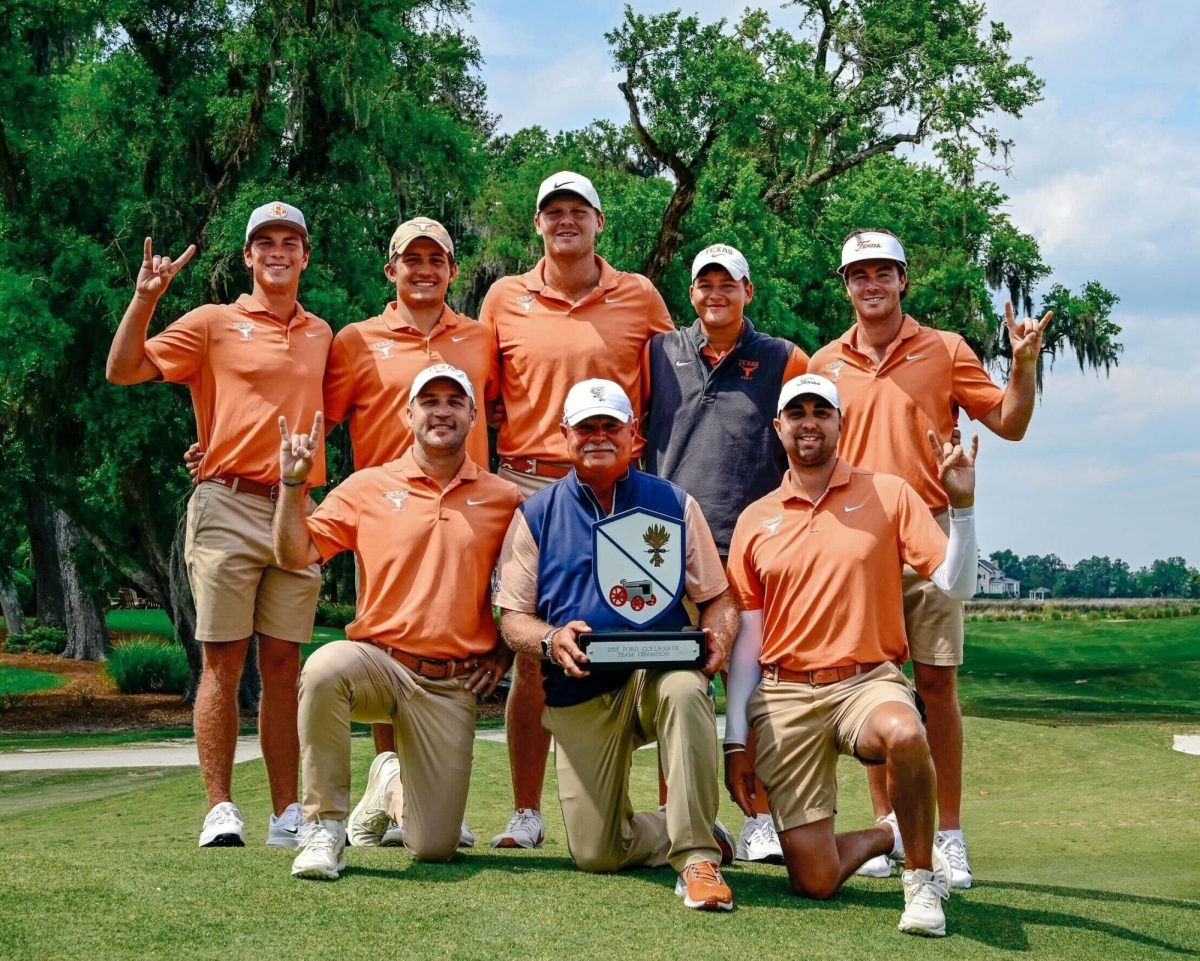In the week before Texas toppled Oklahoma senior quarterback Case McCoy showed great perspective, and a sense of timing, when he said the Red River Rivalry game could define his legacy.
“This is a game that I could be remembered for the rest of my life,” McCoy said. “I’m preparing and [practicing] for a game I’ll be remembered for forever.”
McCoy delivered on the field, and Texas fans now look upon him fondly for defeating Oklahoma and tossing the team back into the national discussion—the positive side of it. The win was monumental, but not a legacy-defining moment. For now, McCoy’s last-minute scramble against Texas A&M is what he’ll be remembered for. But that will eventually fade. The two schools will meet again; it’s inevitable.
In order for McCoy to create a lasting on-field legacy in Austin, and separate himself from his brother’s shadow, the wiry quarterback with questionable arm strength and a fiery personality must lead Texas to a Big 12 championship.
His accomplishments thus far, while impressive, are mere flashes in a long history of trophies and championships at Texas. Other than the Texas A&M game, his stats will barely be mentioned when people look back on the Longhorns in 40 years. He’s quarterbacking Texas through a down era, a time period usually forgotten quickly when rosier timelines develop.
Does anyone remember the name Bret Safford?
No, well he was the Longhorns’ starting quarterback from 1986-87, a stretch where Texas went 12-11. He wasn’t great; actually he never threw for more touchdowns than interceptions in a season, but he was still a starting quarterback for the Longhorns.
McCoy was never quite that bad, but he’s playing during a very similar stretch in Texas football history. Actually, McCoy could be even less memorable than Safford. He hasn’t even been a starter for a full season, and his last name prevents him from forging anything more than the “Oh, isn’t that Colt’s brother?” talk.
This could all change if Case can help catapult Texas back to national relevance—something it’s lacked since his brother left the field holding his arm during the 2009 national championship game. A Big 12 title would do so, and would cement a new beginning in Texas football history, transferring the program out of this three-year period of mediocrity during Mack Brown’s tenure.
McCoy is the type of leader capable of helping Texas through a difficult Big 12 stretch, and come out the other side better for it. His teammates praise his command of the huddle, and his gunslinger mentality gives the Longhorns offense a spark it often lacked when David Ash started under center.
The possibility is there, and it’s almost hard to doubt the spunky three-star recruit who’s already come so far. But if he doesn’t lead Texas back, the lengths he’s already covered won’t matter. Eventually McCoy, at least the Case portion of the name, will fade.














